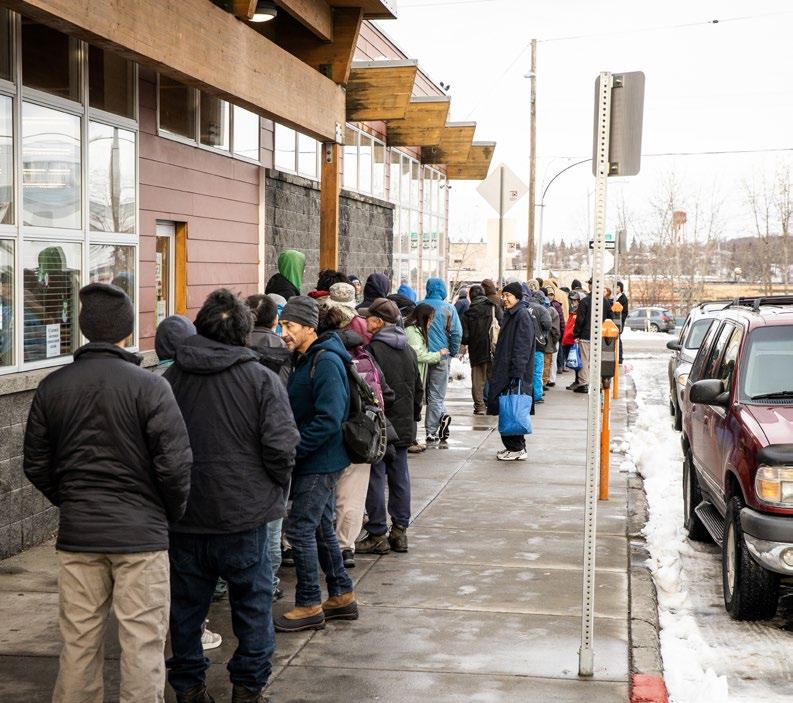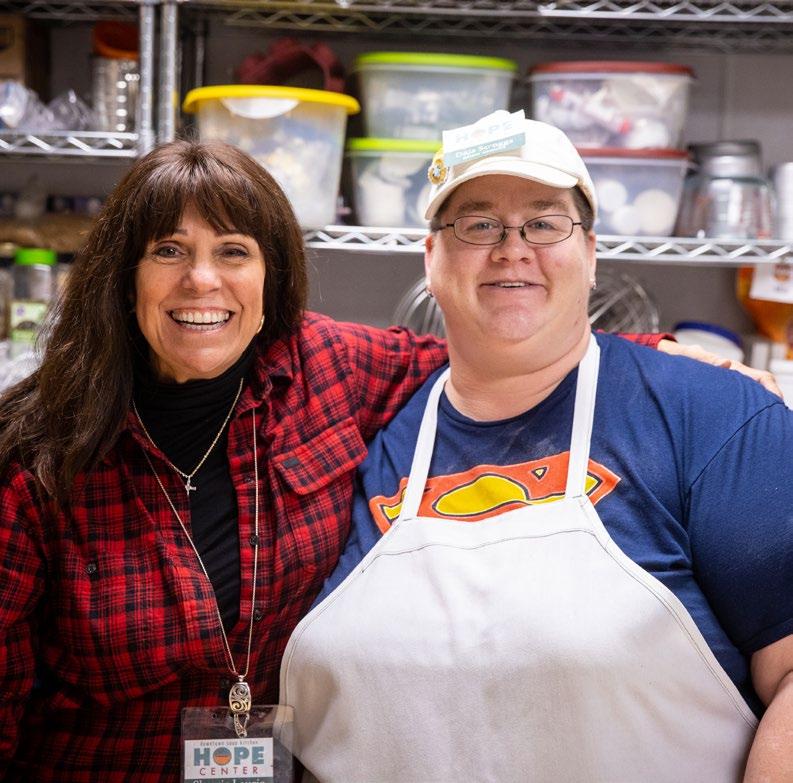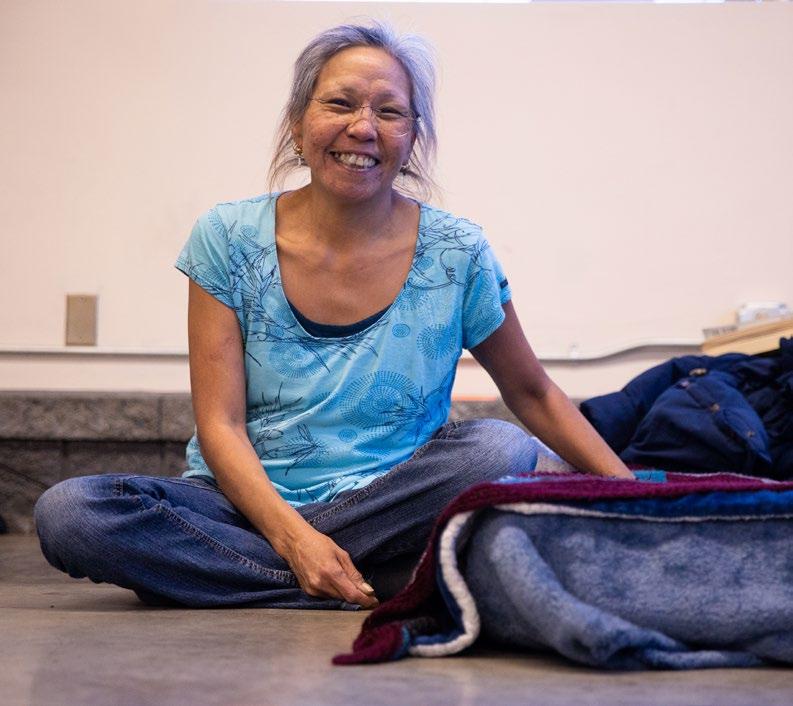
17 minute read
The Protectors
from The Protectors
Cover Story The Protectors Defending Homeless Women Puts An Alaska Shelter At Odds With City Officials
It’s 9 o’clock on a cold, wet night in downtown Anchorage … the end, at last, of a long Friday. A weary Sherrie Laurie and her gregarious little Schnauzer, Jubilee, make their way down the stairs from her office on the second floor of Downtown Hope Center, a soup kitchen that doubles, at night, as a shelter for women . On the first floor, about 50 women are settling in for the night in the 6,000-square-foot room where several hundred homeless souls converged a few hours earlier for hot soup and a sandwich. The kitchen closes in the early evening. By now, the outside doors are locked, the dinner tables have been moved aside, and the women are lining up to get the mats on which they’ll make their beds, spreading them across broad benches spaced a couple of feet apart.
Here, among so many others who share their pain, addictions, and loneliness, they feel safe, at least, from the dangers of the streets just outside.
Sherrie and Jubilee step out a side door onto those streets, and into a driving rain. They catch sight of a woman trying to pull open another side door to the shelter. Sherrie, who for five years has served as executive director of Hope Center, asks if she can be of help. But the woman keeps tugging at the locked door.
Everyone has a story ‘‘ Sherrie Laurie Executive Director, Downtown Hope Center
Sherrie suggests that she move around the corner and knock at the front door. The woman doesn’t want to do that. She moves instead to pet Jubilee, who is wary, growling, and barking. Sherrie takes note, but calms her dog and lets the woman pet her. Then Sherrie offers to take her inside.
The shelter director says there’s room enough for one more, and so Sherrie directs the woman to the line for bedding, and tells her how to find a space and lay out her mat. She wishes the woman a good night, then asks the security guard to escort her to the dark parking area across the street.
They’re halfway there when the door bursts open behind them. “Come quick!” a lady screams.
They race back. The woman has grabbed a tiny elderly lady beside her in the line, lifted her by her hair, and begun clawing her face. As Sherrie rushes in, several women tackle the attacker, bringing her down and using all their collective strength to pin her as she screams and writhes and spits and seems to go completely insane before their eyes.
The police don’t respond quickly; Sherrie and the others have held the woman for more than half an hour before officers come in to relieve them. They check and find the woman has a history of violence and has spent time in psychiatric wards. They wrap her in warm blankets, and the officers take her away.
“Those kinds of things happen,” Sherrie says, “and happen that fast. All of a sudden, things just come apart. And you walk away, thinking, “God, why do I do this? Why do You have me here?”
It’s a question Sherrie knows all too well. She knows the answer, too.
I actually got down on the floor — it was a dirty floor — and said, ‘God, I need compassion. I can’t do this without compassion.’ ‘‘ Sherrie Laurie, Executive Director, Downtown Hope Center
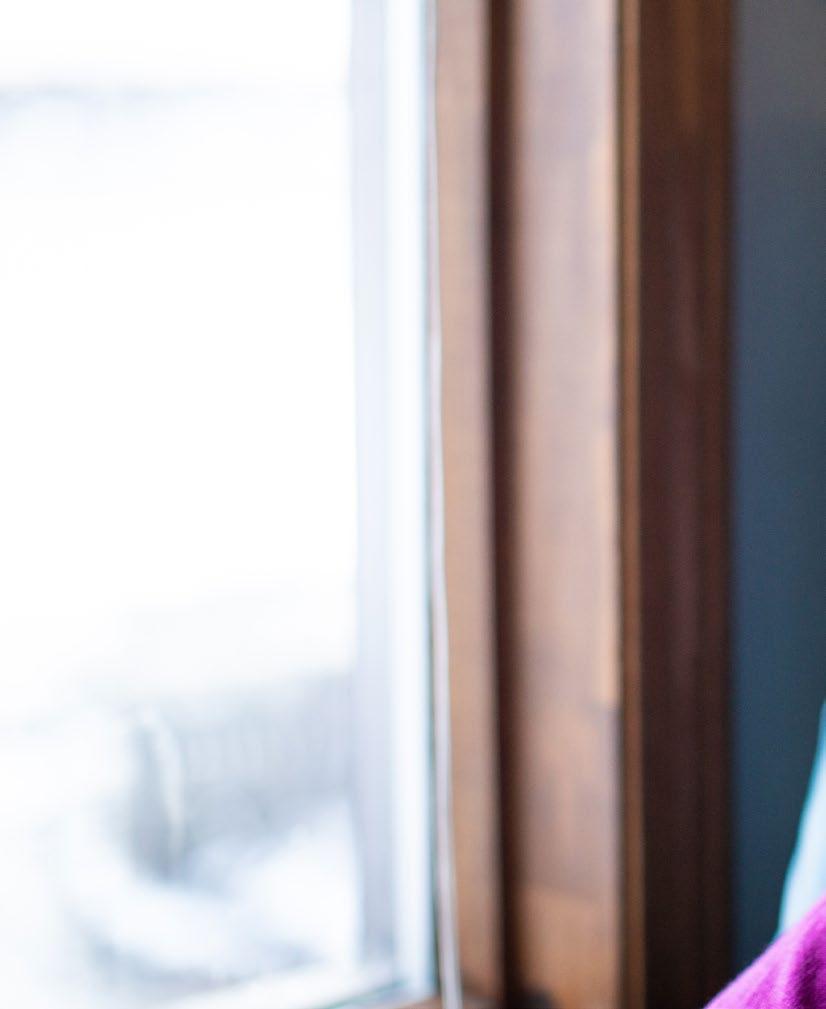
It’s been 15 years since Sherrie retired from two happy decades as a FedEx pilot to spend more time with her family. Along with her family commitments, she also felt God was calling her to something new. “And so,” she says — and this tells you most of what you need to know about Sherrie — “I thought I’d conquer some of my fears.”
Among her biggest fears, as it happened, were the negatives she associated with homeless individuals. (A homeless uncle had often frightened her as a child.) From those memories, she admits, came a judgmental attitude toward drug addicts, alcoholics, and the ways of those living on the streets. Facing her fears, she decided to volunteer at Downtown Soup Kitchen.
Soon enough, they moved her from the lunch line to what was called the “shower house,” a building that offered hot showers to homeless individuals while staffers laundered their clothes.
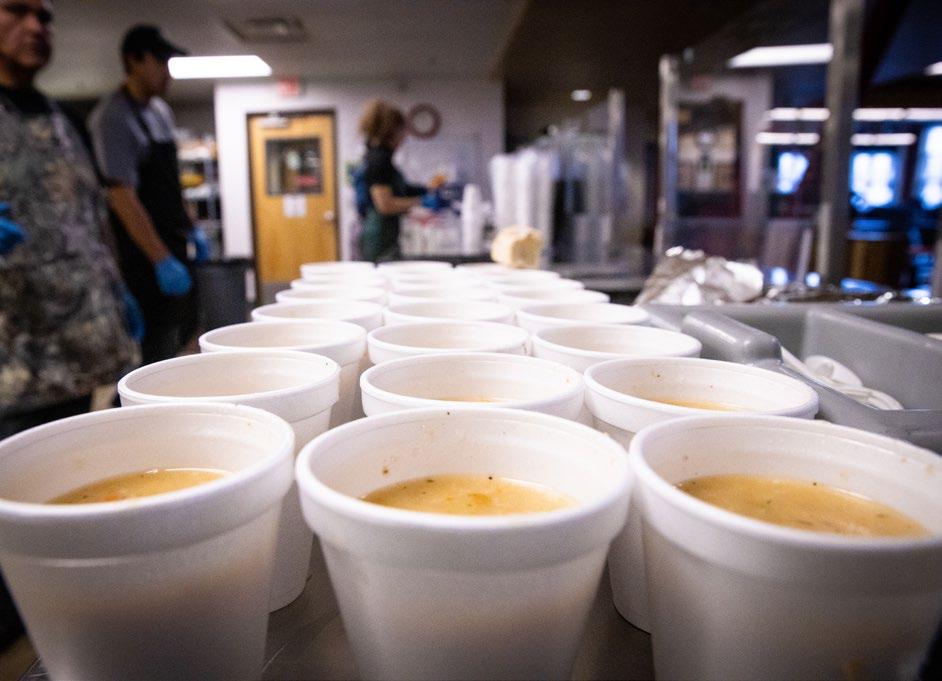
“I remember my first day, sitting there, holding these filthy clothes,” she says. “You have no idea the stuff that’s on their clothes. I’m a germ freak, and … it was just awful, and I’m thinking, ‘Why in the world am I here?’” Sherrie liked to think of herself as a kind person, but watching one of her coworkers interact with the people coming in off the street, she marveled. “She was so kind to them,” she recalls. “She’d just do anything. She’d wash their feet. I was scared, sometimes, to even hug these people. And I remember thinking, ‘I’m not a very compassionate person.’
“I actually got down on the floor — it was a dirty floor — and said, ‘God, I need compassion. I can’t do this without compassion.’ And that started a journey of learning what His compassion is. By the end of the day, I absolutely loved what I was doing, and I was thanking God all the way home, like ‘Thank You that I can do this!’ I mean, it just did something inside of me.” The transformation grew, day by day, and with it, zeal for the work and insights into how it might be done better. Eventually, she secured a spot on the soup kitchen board — then, unexpectedly, found herself pressed to take on the job of executive director.
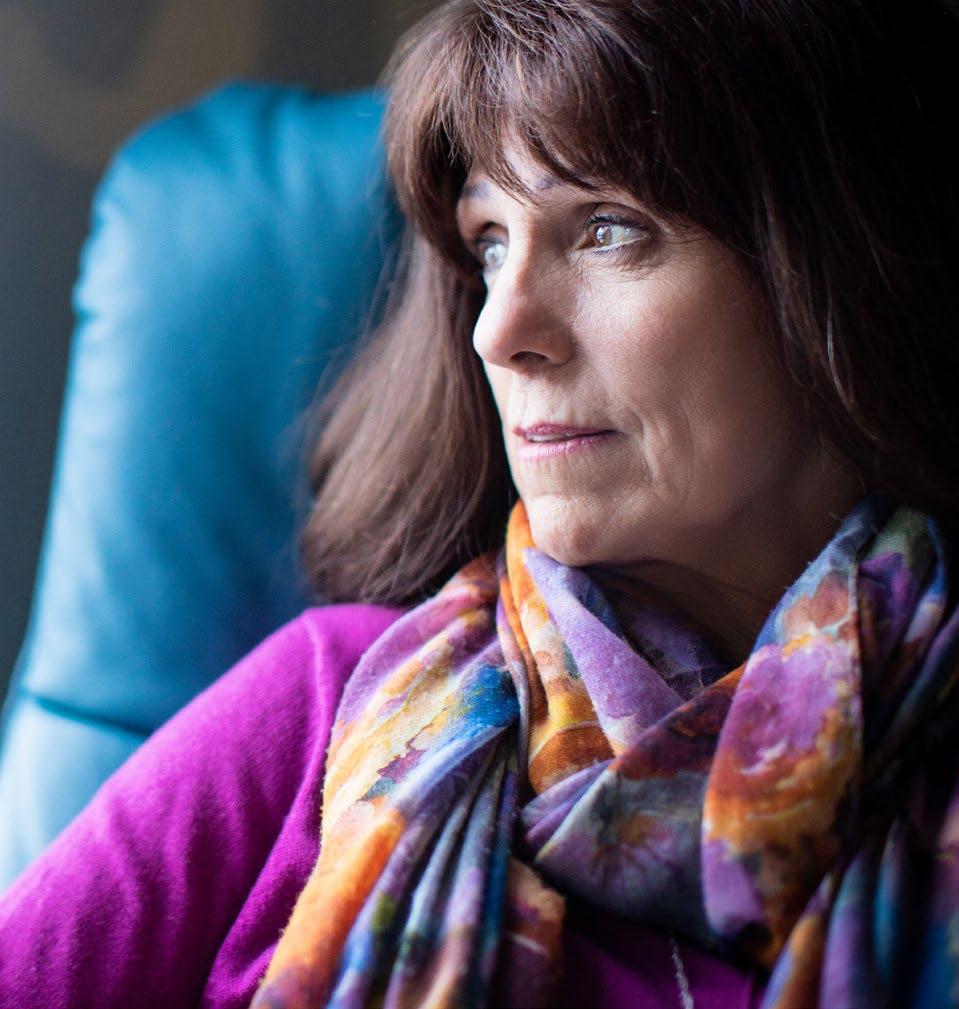
“It’s not often that you find a person of her sophistication who’s willing to help people at their worst,” says Richard Irwin, her then-pastor and fellow board member who nudged her to take the position. “I just felt like it was God … that His hands were on her to do it.”
“I literally prayed and fasted for 40 days,” Sherrie laughs. “And at the end of it, I said, ‘Well, all I can do is fail.’ But I figure, if God’s asking, then He’ll help. And He has — tremendously.”
“Sherrie’s a hands-on person,” Irwin says. “She’s smart. She’s very tenacious. And a servant. There was no question about it. She was the obvious choice. It took real courage, because she’d never done that before — she didn’t have a manual on it. It’s a very different kind of leadership than flying. But when she stepped into this, [Downtown Hope Center] evolved very fast.”
We see them come to the Lord, right and left. So many want to be baptized. ‘‘ Sherrie Laurie Executive Director, Downtown Hope Center
Before Sherrie came on board, there was no women’s shelter at the ministry — only the soup kitchen, showers, and laundry. But one week, back in her volunteer days, she and some friends had sponsored an evangelistic event to reach those living on the downtown streets, and put up an enormous tent in a nearby park where women could stay for a few nights.
“At night, I would stay in the tent, and the ladies would come in there, and they’d be so scared,” Sherrie says. “People would try to drag them out of the tent. I didn’t realize life was like that — that bad — at night. I was even a little scared.” Out of those nights came the idea for a shelter … a place where women with no place else to go could find a safe place to sleep. Sherrie began working to make such a place a reality. Five years later, she found herself the executive director of the soup kitchen (soon to be renamed Downtown Hope Center), and she and her team were able to accommodate the urgings of a nearby shelter to open up an overnight facility for women. The first year, she took in 30; today, that number is more like 50.
“When they come in here,” Sherrie says, “if you can imagine what it’s like, being beaten to the point of death, being told you’re nothing. Held captive. Drugged, till you have no idea even who you are.” In other local shelters, opened to both men and women, “their predators are there.”
Sherrie tells of women taken from those shelters and murdered — or set on fire, or raped, or forced to sell drugs, or themselves. “The women become victims so often. Alaska’s the number one state for domestic violence in the whole nation. Four times the national average, here.”
Which is why, she says, “I absolutely love the women in the shelter, and watching them come alive, when they come in here. They start realizing there’s others sharing the same story. They start working together. Laughter comes in, friendship comes in, feelings of life come in. These deep relationships develop. They remind each other to live by their values. We see them come to the Lord, right and left. So many want to be baptized.
“These are women who would never have even said anything before, because of how downtrodden … how abused they were. But here, they’re getting their voices back.”
You have to have discernment, to see people hurting, and to know why they’re hurting. ‘‘ Jim Corso, Head of Security, Downtown Hope Center
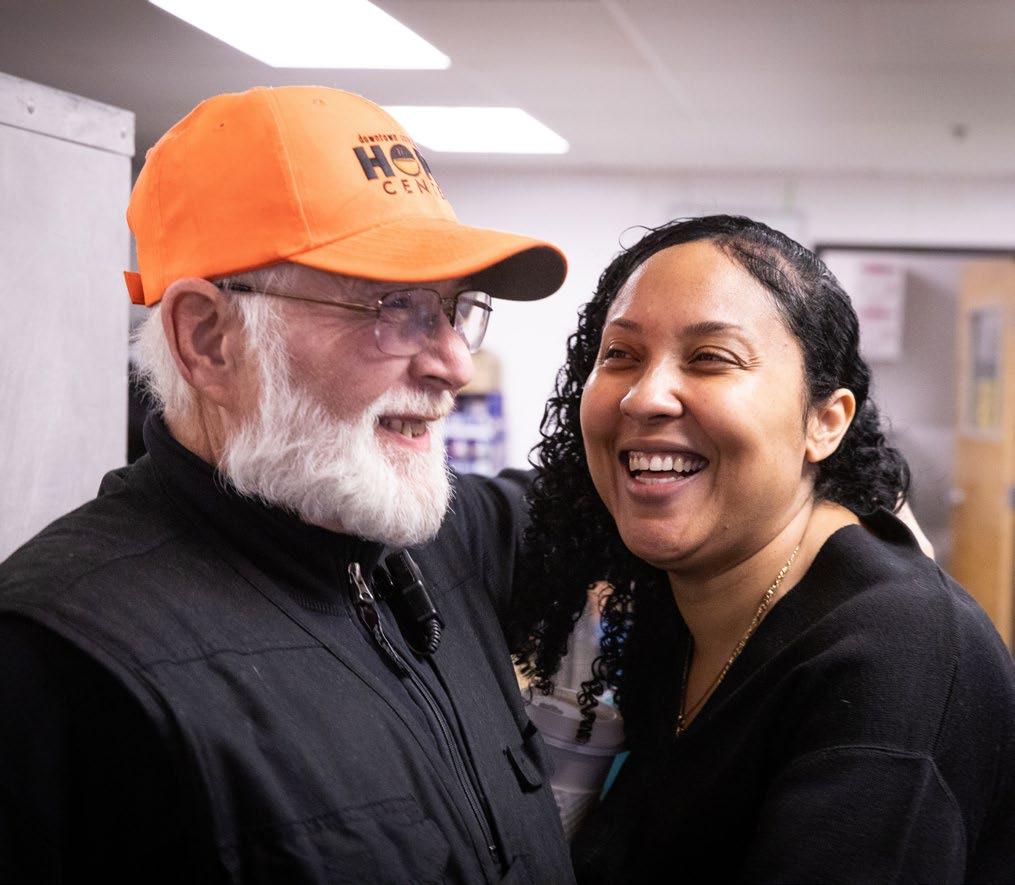
Under Sherrie’s direction, Downtown Hope Center has also grown to include the Feed Me Hope Bakery (whose products are sold throughout the community, with all profits going to support the shelter) and a 16-week culinary school, open to select applicants from the soup lines who show that they are serious about the opportunity. The culinary school includes a life skills class that encourages those participating to take a hard, thoughtful look at their choices and consider what’s needed for them to make real, lasting changes in their lives.
“We give them back hope,” says “Chef David” Sorensen, who teaches the culinary classes, and assists with other duties in the Feed Me Hope program. “We give them back self-esteem.” And when graduation comes around, many of them stop by to say how grateful they are for the ministry at Downtown Hope Center and the love of the staff. “God shows up here all the time,” he says. “It’s His house. We’re just blessed to be able to serve here.” His students are among those serving — helping prepare the sandwiches and soup that feed 450-600 men and women at lunch each day, and an evening meal for the 50 women in the shelter.
Those moving through the line reflect every size and shape, age, and ethnicity. Some are quick and alert, some not. Some seem tired and sullen, others sweet and cheerful … others angry, jittery — volcanoes, waiting to erupt.
“You have to have discernment,” says Jim Corso, a retired federal agent, Vietnam veteran, and head of security for Hope Center. “To see people hurting, and to know why they’re hurting.” He tries to help the Center’s 160 weekly volunteers cultivate that discernment. A self-described “people person,” Corso was drafted for the job by Sherrie, who goes to the same church he does — the church Irwin used to pastor. Many of the other Hope Center employees have experienced their own difficult pasts. For them, their own hard experiences deepen their commitment to the Center’s ministry, and their appreciation for what it means to those in the shelter and the soup lines. They encourage each other, show grace to each other, and push each other to do better — and be better — every day.
“Bottom line: we’re all just a piece of work that God is refining,” Irwin says. “And if we can’t go there, then we make really good Pharisees.” He laughs. “I’m a recovering Pharisee. I hope.”
“We’re one big happy family,” Corso says. “There really aren’t any bad days.” Well … maybe one. Jim Corso, head of security, shares a laugh with Shelter Director Monica Martinez.
We give them all a smile. For some, it’s the only one they’re going to get all day. ‘‘ D a v e S o r e n s e n Head Chef, Downtown Hope Center We give them all a smile. For some, it’s the only one they’re going to get all day. ‘‘ D a v e S o r e n s e n Head Chef, Downtown Hope Center
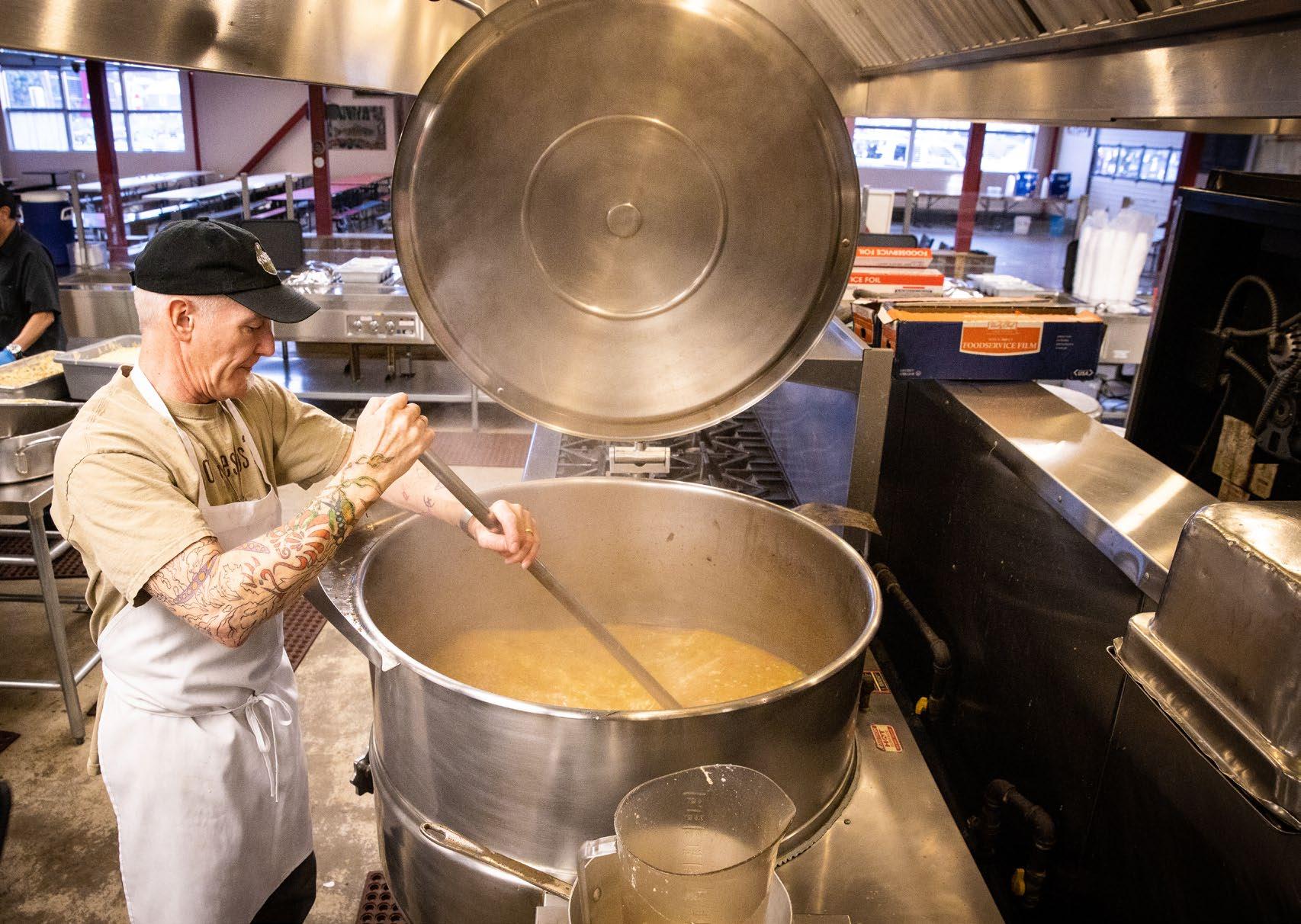
Another Friday night, late and cold. Sherrie was in her office upstairs when a call came in from the shelter below — a man was at the front door, demanding admission. Not entirely knowing what to expect, she headed downstairs.
Standing there was a tall man she’d met many times before. He was a man who liked to identify as a woman, who came through the soup line fairly regularly. Tonight he was clearly intoxicated, bleeding from a gash down his face, and dressed in a pink nightgown. He repeated his demand to stay at Hope Center, with the women. That was not an option. The other women in the room were already moving as far away from him as possible. Many had been sexually assaulted by men on the street or in other shelters. None of them were comfortable with the thought of this man — or any man — sleeping a few feet away.
So, Sherrie spoke with him. She called for a cab to come and take him to the hospital, where his injury could be treated. After a while, he seemed amenable to that, and even smiled and hugged Sherrie as he left for the hospital. He called her “Mother Teresa.” Dave Sorensen prepares soup for the 450-600 people who will soon begin arriving for lunch.
The next afternoon, in her upstairs office, she got a call that he was back, suitcase in hand, trying again to gain admission to the women’s shelter. Sherrie came downstairs and explained that no one was allowed into the shelter on weekends; the women admitted on Friday evenings were locked in for the weekend, under the protection of volunteers. No one else could be admitted until the shelter opened again on Monday evening.
The man wasn’t smiling now, and Sherrie was no longer “Mother Teresa.” He insisted he be let in, but Sherrie knew she couldn’t budge. He went away angry. But the women in the shelter, watching the confrontation, sighed with relief. They later told Sherrie that if she’d let the man in — that afternoon or the night before — many of them would have left and not come back. They couldn’t bear the uneasiness of having a man so close at hand, in a place where they would sleep or change clothes.
Two weeks later, Sherrie received a letter from the Anchorage Equal Rights Commission. The man she’d helped that night had filed a formal complaint, charging sex and gender identity discrimination.
It should go without saying, but protecting vulnerable women isn’t illegal. ‘‘ Kate Anderson, ADF Senior Counsel
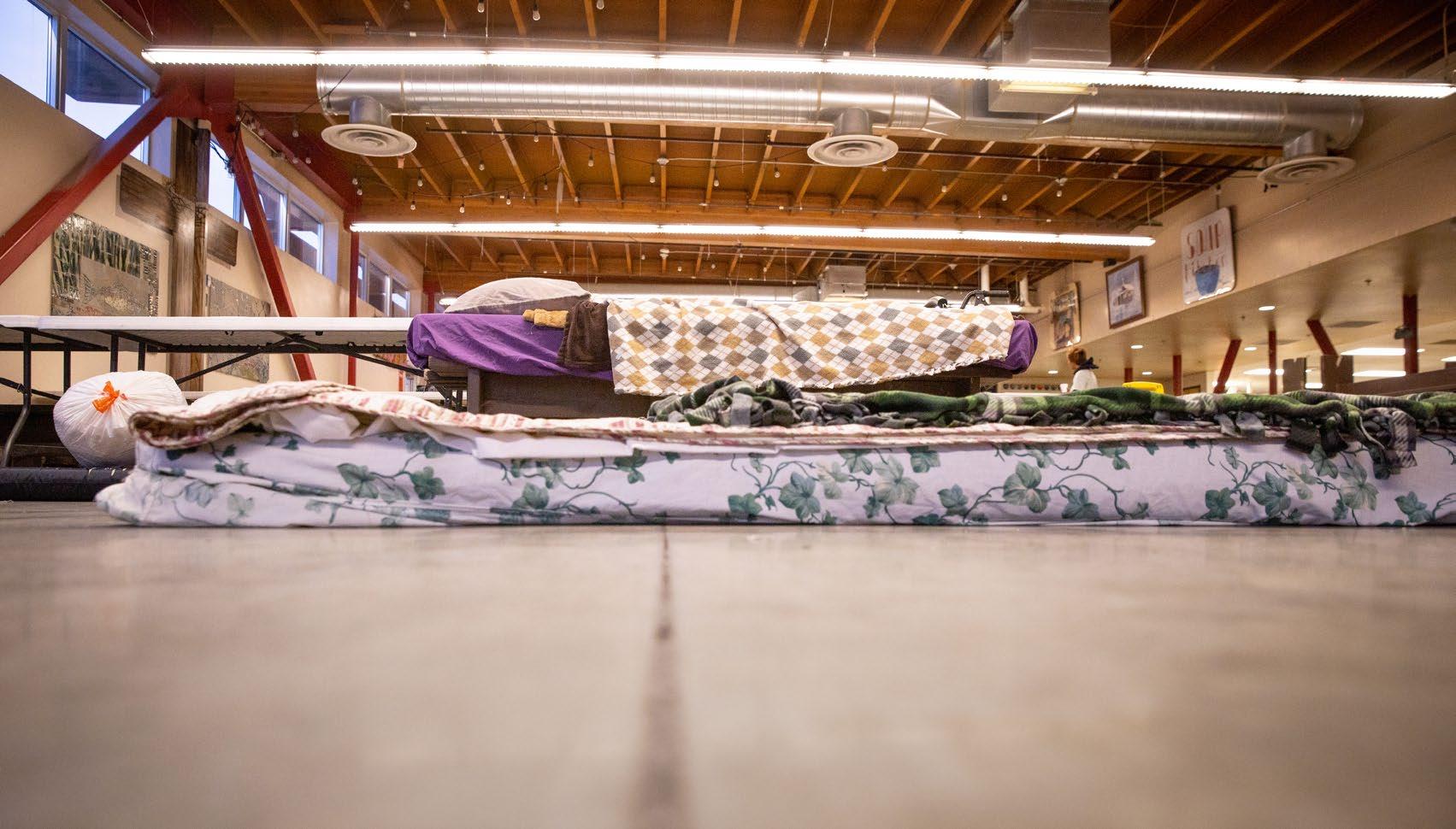
No good deed goes unpunished,” says Ryan Tucker, senior counsel with the ADF Center for Christian Ministries and one of the attorneys Sherrie eventually enlisted to defend Downtown Hope Center against the complaint.
Tucker and his colleagues soon found that the city’s Equal Rights Commission was investigating Hope Center, with an eye to forcing the ministry to open its nightly shelter to biological men who identify as women. In essence, city officials demanded that the Center set aside the beliefs on which its services were based — or else close down its overnight shelter.
“The community — they know that we do a really good work here,” Sherrie says. “They know we don’t take any state money, [so] they can’t figure out how we do it and why it works. They’d like us to be more … accommodating of their agenda. They know we make a difference — they’re just not so sure about God being involved in what we do.”
“That faith commitment is what motivates Downtown Hope Center and its duty to protect the vulnerable women it serves,” says Kate Anderson, senior counsel with the ADF Center for Conscience Initiatives. All Americans, she adds, “should be free to “
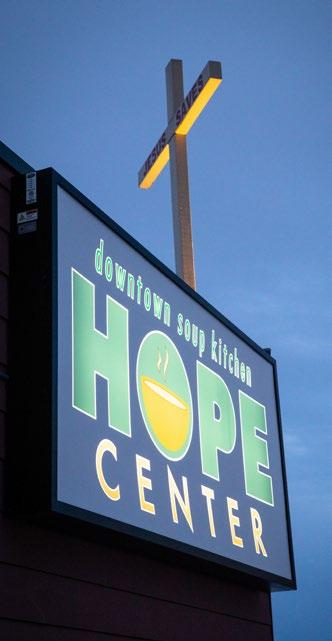
live and serve others according to their faith, without fear of unjust government punishment.”
“It should go without saying, but protecting vulnerable women isn’t illegal,” Anderson says. “No woman — particularly not an abuse survivor — should be forced to sleep or disrobe next to a man. Downtown Hope Center serves everyone, but women deserve a safe place to stay overnight.” Since Hope Center had not, in fact, violated any law, ADF filed a federal lawsuit on its behalf against the Anchorage Equal Rights Commission and the city. In September, a U.S. District Court issued an order saying Anchorage’s public accommodation law does not apply to the Center’s women’s shelter — and could not be used to force the Center to open its shelter to men who identify as women.
Soon after, the commission dropped its pursuit of the complaint. “This [situation] is not limited solely to Anchorage,” says Tucker. “This is a broader concern for the nation as a whole, and certainly for faith-based institutions that clearly make their positions known to their community.” He cites groups like Catholic Charities of West Michigan and New Hope Family Services of New York (both being
Top: A shelter guest and graduate of the Feed Me Hope culinary and bakery programs Middle: Sherrie Laurie with Daja Scroggs, graduate of the bakery program and now bakery manager Bottom: Members of the Anchorage community — many without homes — line up for lunch.
pressured to support adoptions by same-sex couples) and churches like Cedar Park in Washington and Skyline Wesleyan in California (both being compelled to provide employee insurance coverage for abortions).
More than just an assault on people who live out their faith in the public square, he says, “this is an absolute war on women. They are not valued in these situations, where the culture says that biological ‘sex has no meaning,’ that ‘there are no differences.’”
That threat, Tucker says, “always remains, across the nation, as we delve into some uncharted legal and cultural territory.”
This whole journey has been one of the highlights of my life,” Sherrie says. “We would never be here now but that ADF came to our defense.” More than that, she says, “ADF has a culture of honor — with each other, toward their clients, even in how they handle the people that the lawsuit is against. They’re my heroes.” The admiration is mutual. “There are certain people that just make an imprint on you, as a lawyer,” Anderson says, “people you’re never going to forget. And Sherrie Laurie is one of them. I’ve been so inspired by the love she has for the women she serves … people that the rest of society has thrown away. Seeing her love for them and for what she does has inspired that kind of care in me.”
That compassion Sherrie prayed for so long ago was given, freely and in abundant measure.
“You look at the lunch line, at the number of people broken down there,” she says, “and you realize … everyone has a story. Every single one. They didn’t get born that way. They were raised in an abusive family; they were abused as a child; they were in a bad accident and got a traumatic brain injury; they were in a domestic violence situation; they were trafficked as a child. They’re just human beings that something horrible happened to.
“If it wasn’t that I know that there’s a God who loves people, I would be hopeless for these people. I would just stop doing this, and I’d go back to flying. But because I know God loves people, I have hope for these people. And He has to use somebody to bring them that hope. “That’s how I can come to work every day.” “
WATCH: Meet some of the women of Downtown Hope Center at ADFlegal.org/fj-Hope
